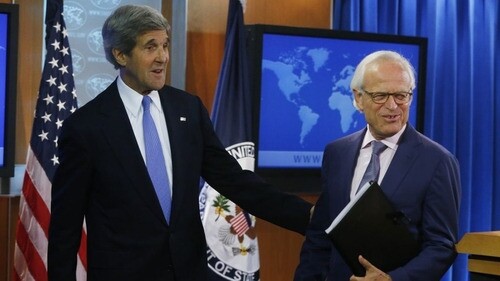In a eyebrow-raising 4,000-word exposé, “Foreign Powers Buy Influence at Think Tanks” published in the New York Times on September 7, Eric Lipton, Brooke Williams and Nicholas Confessore look into the novel issue of foreign governmental financing for American think tanks.
The trio found that while the total scope “is difficult to determine ... since 2011, at least 64 foreign governments, state-controlled entities or government officials have contributed to a group of 28 major United States-based research organizations.” Using the sketchy available information, they estimate “a minimum of $92 million in contributions or commitments from overseas government interests over the last four years. The total is certainly more.”
In exchange for this largesse, the research institutions in question offered their donors two main benefits: One, they pressured staff members both to “refrain from criticizing the donor governments” and “to reach conclusions friendly to the government [that had provided] financing.” And two, they have been “pushing United States government officials to adopt policies that often reflect the donors’ priorities.” The result: Overseas money has thrown doubt on the legitimacy and objectivity of think-tank research while “increasingly transforming the once-staid think-tank world into a muscular arm of foreign governments’ lobbying in Washington.”
My responses, a week later, to this bombshell of a report:
Some of this funding has been given clandestinely, with think tanks taking money under the table while benefiting from a moral image of disinterestedness. In the most prominently egregious example, the government of Qatar, as the NYT reported, “funneled hundreds of millions to Hamas-led Gaza and encouraged its rocket and tunnel assault on Israel,” also signed a four-year $14.8 million deal in 2013 to fund the Brookings Institution where Martin Indyk serves as vice president and director of the Foreign Policy Program. Indyk worked for Secretary of State John Kerry from July 2013 to June 2014 as special envoy for Israeli-Palestinian negotiations. As someone on the same payroll as is Israel’s mortal enemy, how could Indyk be expected to act in a neutral way?
The president of Brookings, Strobe Talbott, not only did not apologize or show a shred of embarrassment that foreign governments underwrote some 12 percent of his funding, but had the temerity to respond that “think tanks should take money from foreign governments.” Deploying such self-serving buzzwords as “governance” and phrases like “the philanthropic culture is changing,” he fatuously argued that it “is entirely appropriate for us to work with [governments] when we have the capacity to contribute analysis and prescription on issues that they are dealing with in the policy realm.”
The Times article exposed – astonishingly – the corruption of liberal establishments such as the Brookings Institution, the Center for American Progress, and the National Democratic Institute. How honest, honorable, and unexpected from a newspaper that has become the nation’s billboard for unthinking liberal bromides. Conversely, the exposé found not a penny going to conservative institutions such as the American Enterprise Institute, the Heritage Foundation, and the Hudson Institute. (If the Times continues with journalism of this caliber, I might even pay for its iPhone app!)
Similarly, concerning the Middle East, where the article mentions several countries (Bahrain, Kuwait, Qatar, Saudi Arabia, UAE) whose governments play this influence-and-opinion-buying game, not one of them is called Israel. This pattern emphatically verifies the thesis presented by Mitchell Bard in the subtitle his 2010 book, The Arab Lobby: The Invisible Alliance That Undermines America’s Interests in the Middle East (Harper). As Steven J. Rosen, formerly of the American Israel Public Affairs Committee, notes, if “measured by level of effort, if not results, the Arab lobby is equal, or superior to, anything done by the friends of Israel.”
Finally, the Times exposé placed all think-tanks on the defensive. If white-shoe organizations like Brookings are on the take, none of us is exempt from suspicion. In this light, the organization I head (slogan: “Promoting American interests”) immediately issued a press release, “The Middle East Forum Takes No Funds from Foreign Governments,” which stated unequivocally that “we have never sought or taken funding from any foreign government, nor from any agent of a foreign government. And we never will.”
More broadly, as John B. Judis argues, “foreign funding of think tanks is corrupting our democracy.” Therefore, it’s time for all research organizations presenting themselves as providing objective analysis to take a similar pledge, or else to label clearly who bought and paid for their conclusions.
Mr. Pipes (DanielPipes.org) is president of the Middle East Forum. © 2014 by Daniel Pipes. All rights reserved.








